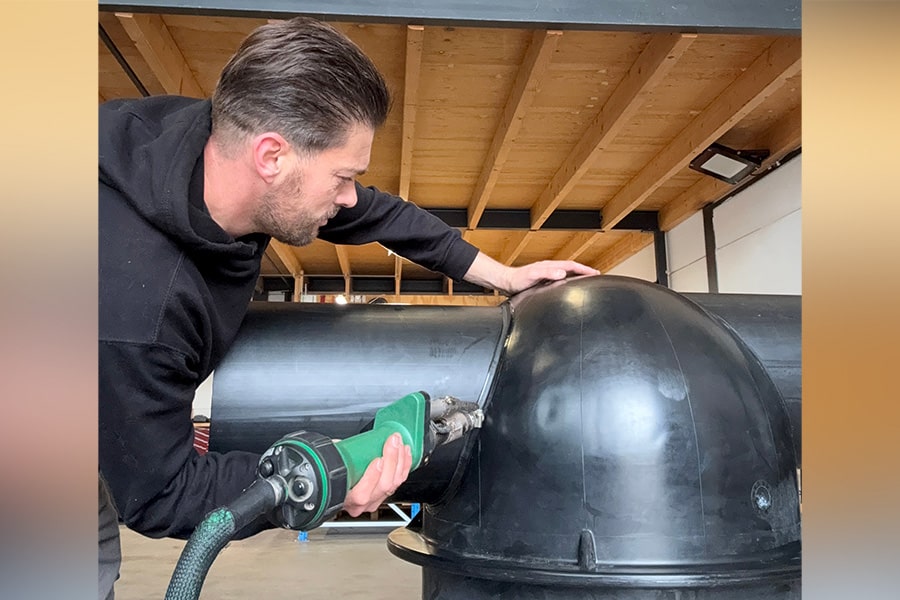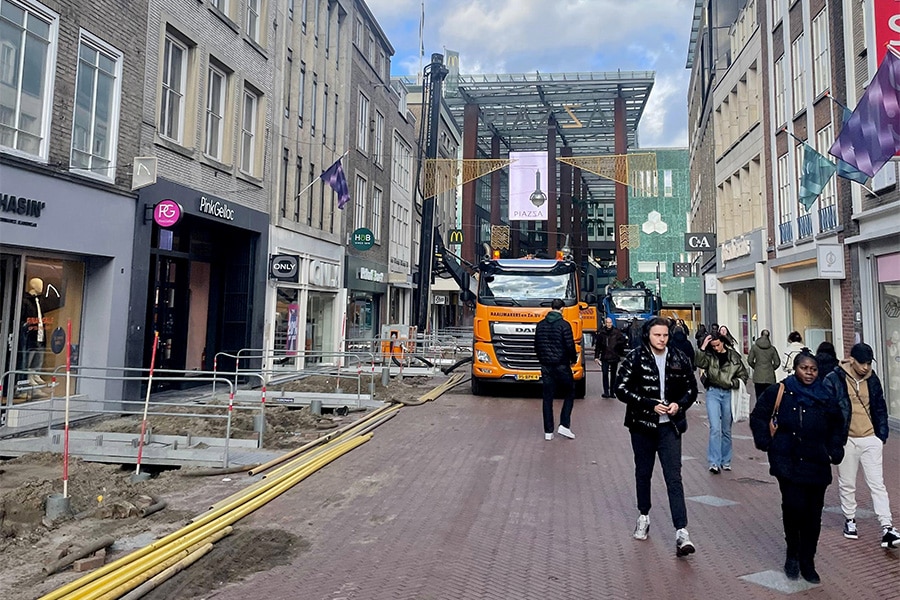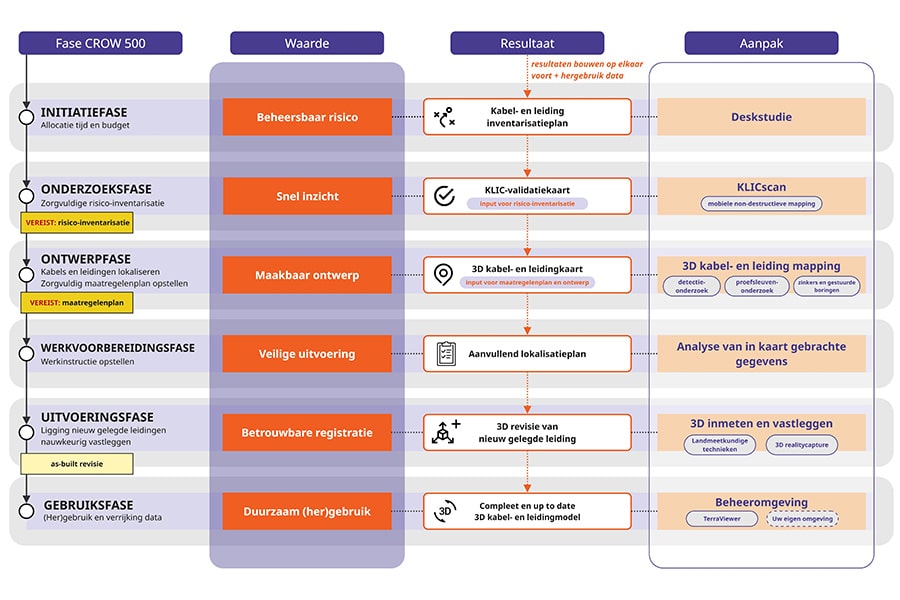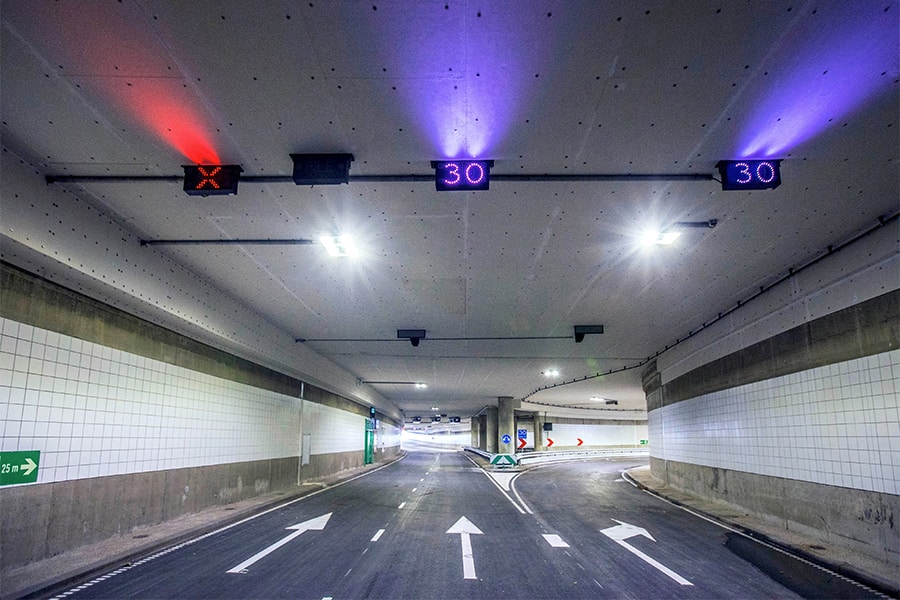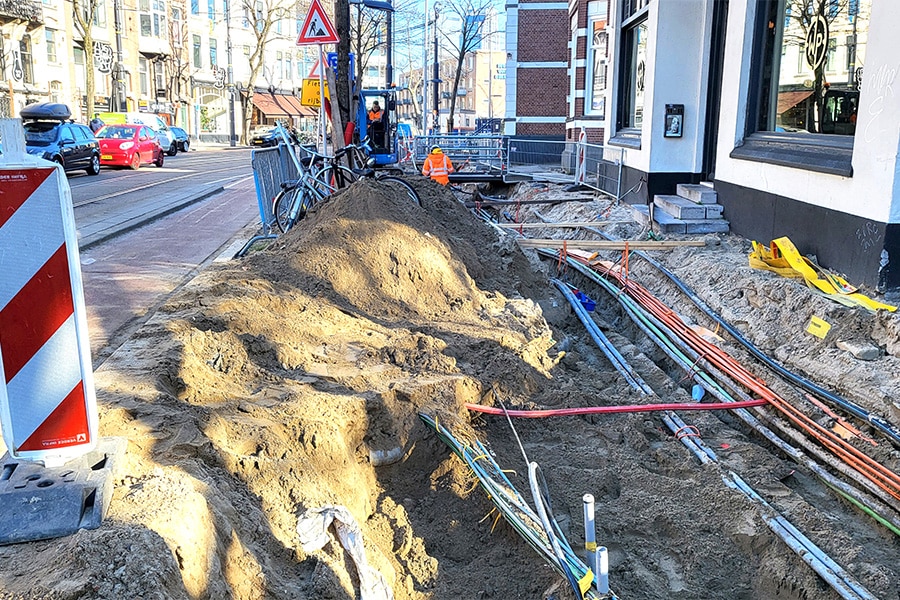
Addressing issues in the subsurface 'in context'
Future-proof utilities and a manageable underground
"The compartmentalization within the cable and pipeline industry, the complex laws and regulations, the increasing lack of space, resources and capacity and the lack of (exchange) of data ensure that the traditional way of working no longer guarantees optimal results. In view of the energy transition alone, the realization is growing that cooperation is pure necessity. Nobody can do it alone." Speaking is Edith Boonsma, COB program manager for the Knowledge Arena on Cables and Pipelines. The Knowledge Arena unites parties to tackle future challenges in coherence.
The Cable and Pipeline Knowledge Arena is an initiative of the My Connection Foundation and the CDE. "The CDE is a participant organization that works with a network of more than 120 organizations on knowledge development and makes this knowledge publicly available," Edith says. "Before recently, the CDE had one major research program, the tunneling program. From the Cables and Pipelines platform, the question came at some point whether we could take stock of what's going on in the field of cables and pipelines, what the status is, what the state of legislation and regulations is, and so on. That led in 2019 to the publication of the report 'Common ground for underground infra' containing an analysis of the development task in the underground cable and pipeline infrastructure."
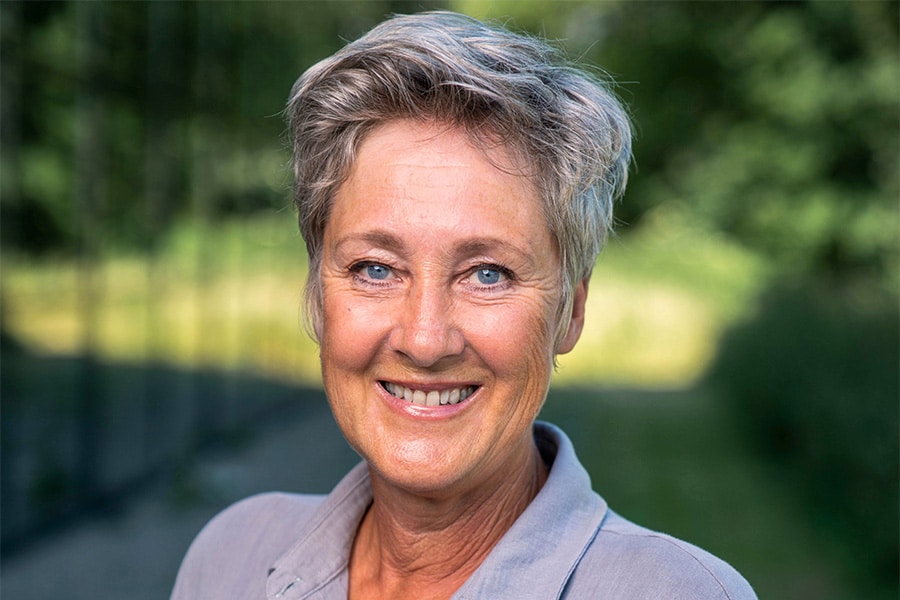
Vision and goals
Based on the 'Çommon ground for underground infrastructure' report, a work program was set up with stakeholders with research projects that contribute to future-proof utilities and a manageable subsurface: the Knowledge Arena on Cables and Pipelines. "We started very practically with subjects that multiple parties wanted to commit to, with each other instead of against each other. And that is working out better and better. Meanwhile, many products have been delivered and we have determined a joint vision and drafted the contours of a program that provides guidance for optimally tackling cable and pipeline related issues towards 2030. This vision was also developed together with the supporters." The long-term vision identified three overarching goals for the Knowledge Arena. These range from efficient programming (the time issue) to optimal ground planning (the space issue) to manageable and robust implementation.
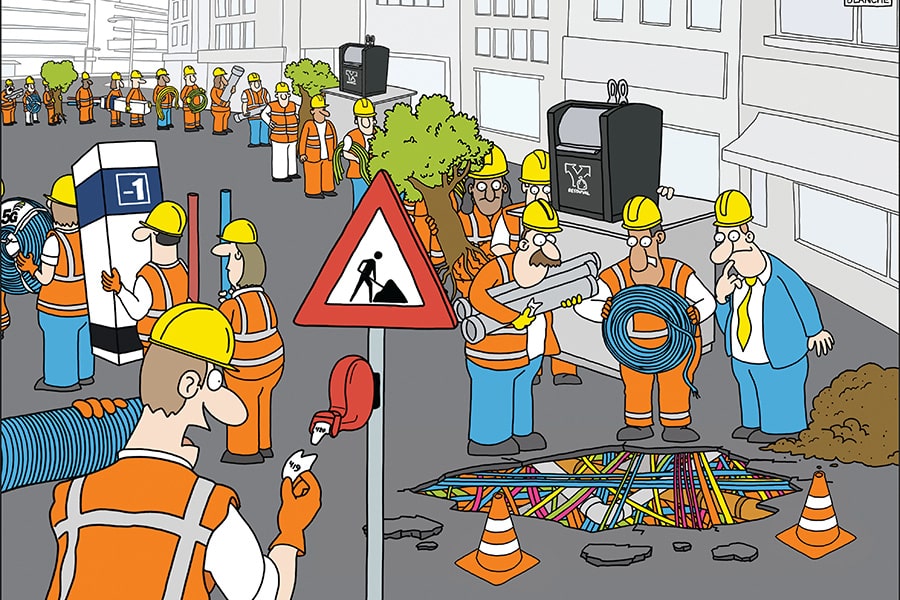
Airy approach to complex subject matter
The interests in the cable and pipeline industry are often opposed, Edith knows. "The grid operator has a duty to deliver, which is a priori what they were ordered to do. They have to supply water, gas or electricity to households and they lay the cables and pipes for that 'somewhere' underground. Municipalities have other interests at stake. They are concerned that the street is not opened up too often because of inconvenience to local residents. So the interests are not equal. Performing parties, for their part, have a commercial angle and want to be paid fairly for the work they do. In the research projects that we initiate from the Knowledge Arena, we puzzle with all these interests to make it attractive for everyone. In doing so, we very consciously try to remove participants from the scope of projects and contradictions. We have all kinds of means to keep the approach light-hearted, because the subject is complicated. Think of the use of serious games and quizzes."

Growth book with fables and facts
The results of the Knowledge Arena's research projects are published in various ways, such as in a growth book. "Think of it as a digital research report that is adapted on the basis of new experiences and insights," Edith clarifies. "In a growth book you will find, among other things, the results of research into the fables and facts concerning laws and regulations. After all, in the industry much is acted upon based on assumptions. With this research we help to eliminate the myths and put the facts in order, so that when parties start working together, they do so on the basis of truths. To make it more lighthearted, we have created a quiz with all sorts of statements that readers can mark as fable or fact. And, of course, a score is kept. It's a way to become more familiar with the subject. In any case, we see that the Growth Book is looked at an awful lot. It really is used as a reference book by the whole industry. Everything we publish is free and publicly available."
Excavation damage as a serious game
Excavation damage is also a hot topic in the industry. "It is of all times," Edith rightly states. "Despite tightened laws and regulations and stricter supervision, no less damage is being done. WIBON, CROW 500, the Kabels en Leidingen Overleg (KLO), everyone focuses mainly on the laws and regulations. From the CDE and more specifically the Knowledge Arena on Cables and Pipelines, we have put forward the idea of approaching excavation damage from a different angle. After all, more and stricter regulations do not produce the desired result. Together with behavioral scientists, we have created a serious game in which we visualize what precedes digging damage. The consequences of the decisions made by different parties in different phases are made clear. In this way we try to stimulate people to behave differently, not as separate links, but really as a chain in which they feel and take responsibility together. The game is such a success that it is being used by CROW for training and education in underground infrastructure."
We really need each other in the underground, says Edith. "Working together is pure necessity. It also means moving with the others and the parties in the cable and pipeline industry are not used to that. And the tricky thing here is that, until recently, it was always possible to stuff a pipeline underground, but that is now a thing of the past. Especially in busy urban environments. It is becoming very complicated at the moment. It's too much. Not only do we have to deal with energy transition, many sewers and pipes are outdated and need to be replaced, a 5G network needs to be rolled out, we need to get rid of gas. In short, an incredibly complex operation. From the Knowledge Arena, we are bringing parties together and researching where we can find each other to pull together, move with each other and learn from each other to achieve future-proof utilities and a manageable subsurface."
